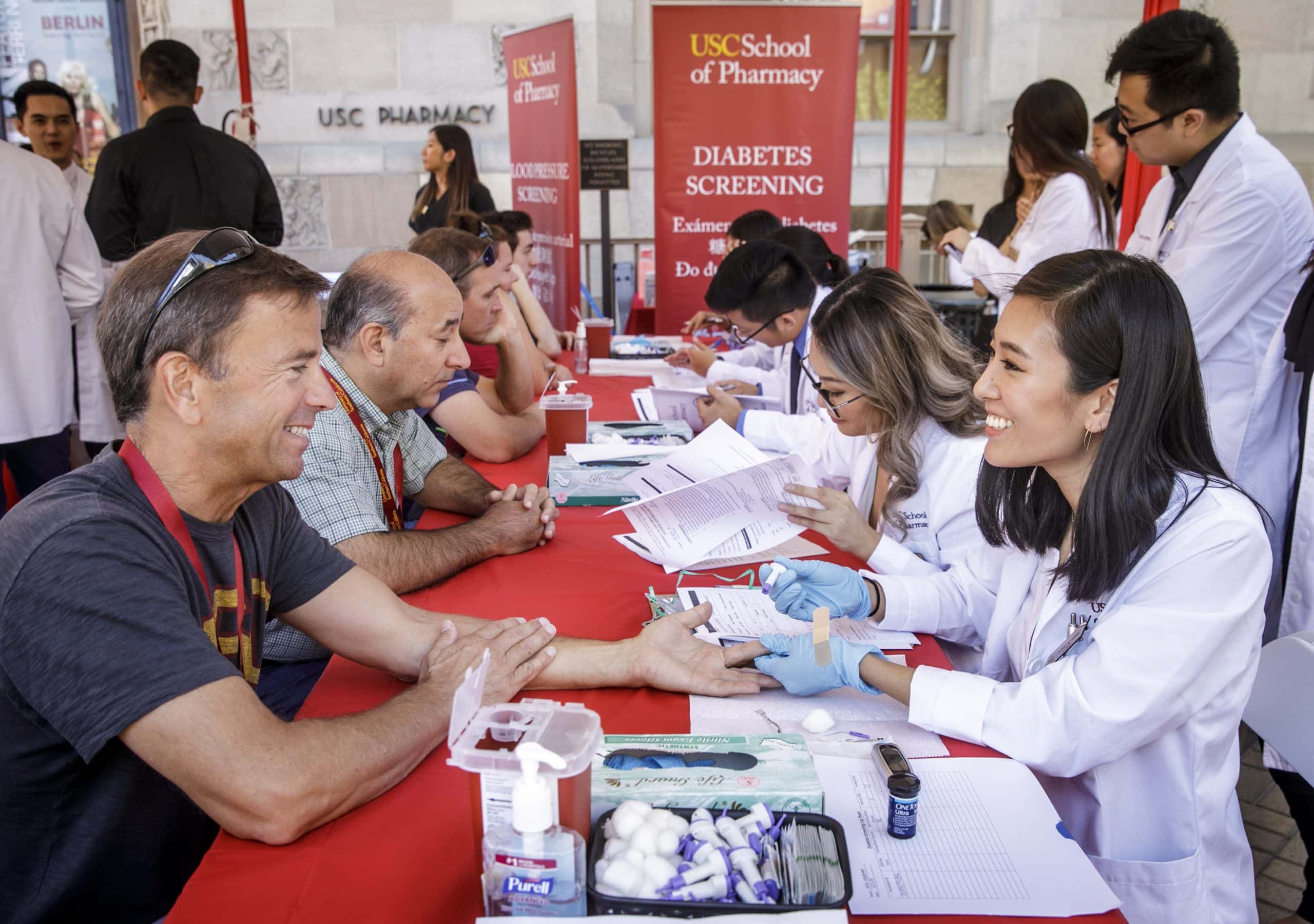Learn to be a pharmacist through extensive hands-on experiences.
We pioneered experiential learning for PharmD students in the late 1960s and today we remain an innovator in preparing students for pharmacy practice in a wide variety of settings.
You will have patient care experiences early on in your PharmD program, increasing in scope and complexity as you learn. By the time you complete the program, you will have logged at least 1,740 hours of experiential learning.
Being on a major health sciences campus—the only private school of pharmacy in such a setting—offers numerous advantages, including four hospitals in close proximity (three owned by USC), three school-owned community pharmacies and interdisciplinary collaboration across campus.
Our broad network of affiliates—some 300 sites with more than 400 volunteer faculty and preceptors, many them alumni of the program—provide you with many options for clinical site placements serving diverse patient populations.

Experiential placements may include:
- Centers for Disease Control and Prevention
- Corporate and industry settings
- Food and Drug Administration
- International sites (including Australia, Denmark, Hong Kong, Japan, Korea and Thailand)
- Los Angeles County+USC Medical Center
- Other Southern California health systems, such as Veterans Affairs medical centers, Kaiser Permanente and Cedars-Sinai
- Private physician offices and clinics
- University of Southern California hospitals: Keck Hospital of USC, USC Norris Comprehensive Cancer Center and Hospital and USC Verdugo Hills Hospital

